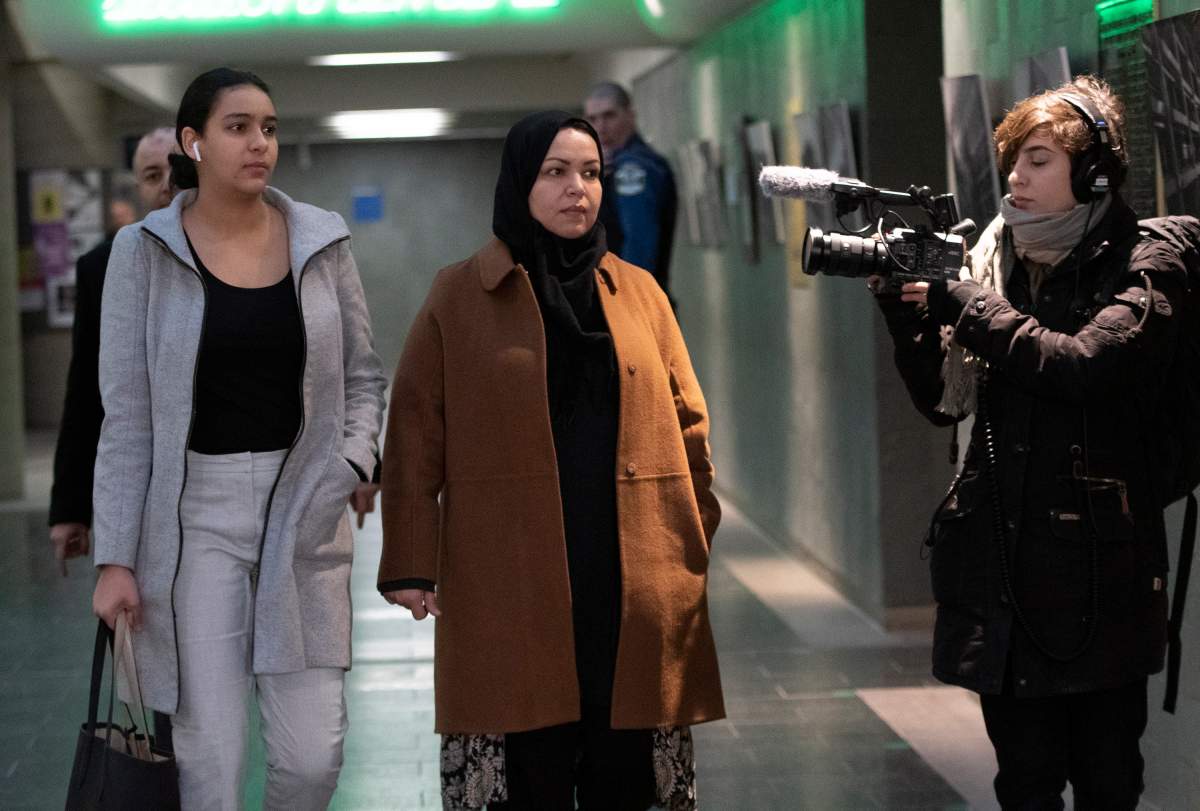Alexandre Bissonnette, the man responsible for the 2017 Quebec City mosque shooting, has been sentenced to life in prison with no chance of parole for 40 years.

“Your name will not be forgotten, but for the wrong reasons,” Quebec Superior Court Justice François Huot told the 29 year old Friday.
Bissonnette pleaded guilty last March to six counts of first-degree murder and six counts of attempted murder in the attack at the Centre Culturel Islamique de Québec.
He ordered five concurrent sentences, and modified the law to add an extra 15 years for the sixth conviction.
WATCH: Alexandre Bissonnette sentenced to life in prison, no parole for 40 years

READ MORE: Quebec City Muslim community ‘astonished and very upset’ by Alexandre Bissonnette’s sentence
Huot chose not to give him consecutive sentences, where he would have been eligible for release in 150 years.
The judge said Friday he took all 24 past decisions of consecutive sentencing — Section 745.51 of the Criminal Code, which was added in 2011 — into account before rendering his decision.
WATCH BELOW: Survivor of Quebec City mosque shooting comments on sentence

Huot concluded demanding consecutive sentences was “constitutionally invalid” and is calling for the federal government to reform the law.
Bissonnette also faces a lifetime ban on owning firearms. He will be eligible for parole when he is 67 years old.
WATCH BELOW: Alexandre Bissonnette arrives for sentencing in Quebec City mosque shooting

Friday morning, Bissonnette entered the Quebec City courtroom, wearing a dark blue suit with a white dress shirt.
Before giving his sentence, Huot warned the room of about 250 people to be respectful of the decision, noting that no protest will be tolerated.
READ MORE: Judge tells Quebec mosque shooting victims not to blame killer’s parents
“Despite the time passed, it will remain forever engraved in our collective memory.”

Get breaking National news
Huot noted Bissonnette was not working in January 2017 because of an anxiety disorder. Doctors had prescribed him Paxil.
The judge summarized Bissonnette’s internet search history, which included looking up the 2015 San Bernardino attack, information on how to prepare his guns and research on other possible targets — including feminist groups, schools, malls and airports.
He mentioned an incident two months before the mosque attack when Bissonnette loaded his weapons and went to a local mall in Quebec City intending to commit mass murder, but changed his mind.
Huot spoke of the night itself, when Bissonnette walked into a mosque in the provincial capital at 7:54 p.m. on Jan. 29, 2017, and opened fire during evening prayers.
WATCH BELOW: Alexandre Bissonnette’s parents arrive ahead of sentencing

Citing security footage, Huot mentioned “a small girl with a pink hat runs without knowing where to hide,” until someone pulls her to safety. There were four children in the mosque that night.
READ MORE: After nearly two years of fighting, Quebec City Mosque shooting widow will get compensation
He noted Bissonnette acted with “calculation, determination and in cold blood,” adding he held racist beliefs and the crime was precipitated by a “visceral hate for immigrants.”
The entire massacre was 90 seconds. There were 48 shots fired in that time.
READ MORE: Quebec City mosque shooting: Remembering the victims and moving on 2 years later
As the judge talked, Bissonnette stared down at the ground, moving only occasionally to fidget or look briefly up at the ceiling.
WATCH BELOW: Imam says orphans of shooting victims would relive incident in possible parole hearing

According to the numerous victim testimonies, many of the people there that night are still traumatized, live in fear, and some are unable to work because of the terror they feel.
Bissonnette’s trial was expected to be a landmark case, forcing Huot to declare last October that he needed more time to decide between sentencing him consecutively (150 years) or concurrently (25 years).
READ MORE: Defence argues 150 years in prison for Quebec mosque shooter would deprive him of hope
Bissonnette’s defence team had previously stated consecutive sentencing should be declared unconstitutional and invalid as it contravenes Article 12 of the Canadian Charter of Rights and Freedoms, which protects citizens from cruel and unusual treatment.
“It (Section 745.51) denies outright the possibility of humanity for a person,” he told Huot last summer.
“Without hope, what is the meaning of a life? There isn’t any.”
Friday, Bissonnette’s defence said they will take the time to review the decision; they did not answer any questions.
Crown prosecutors said they are also going to review the judgement and did not answer questions.
“Our thoughts are with the families, widows and orphans,” said Prosecutor Thomas Jacques.
“We want to highlight the courage, resilience and dignity of the victims throughout the judicial process.”
The mosque shooting claimed the lives of six men: Mamadou Tanou Barry, 42; Abdelkrim Hassane, 41; Khaled Belkacemi, 60; Aboubaker Thabti, 44; Azzeddine Soufiane, 57 and Ibrahima Barry, 39.
“My thoughts are with the families of the victims during this drama,” said Quebec City Mayor Régis Labeaume.
“I hope this verdict allows them to mourn and remember those they lost. My thoughts are also with Alexandre Bissonnette’s parents, the collateral victims in this story.”











Comments
Comments closed.
Due to the sensitive and/or legal subject matter of some of the content on globalnews.ca, we reserve the ability to disable comments from time to time.
Please see our Commenting Policy for more.